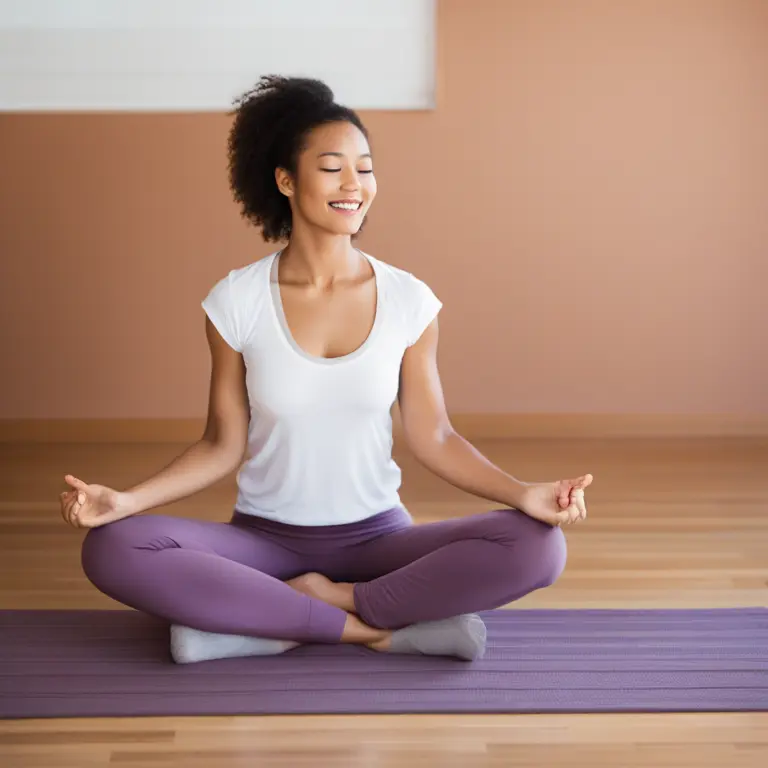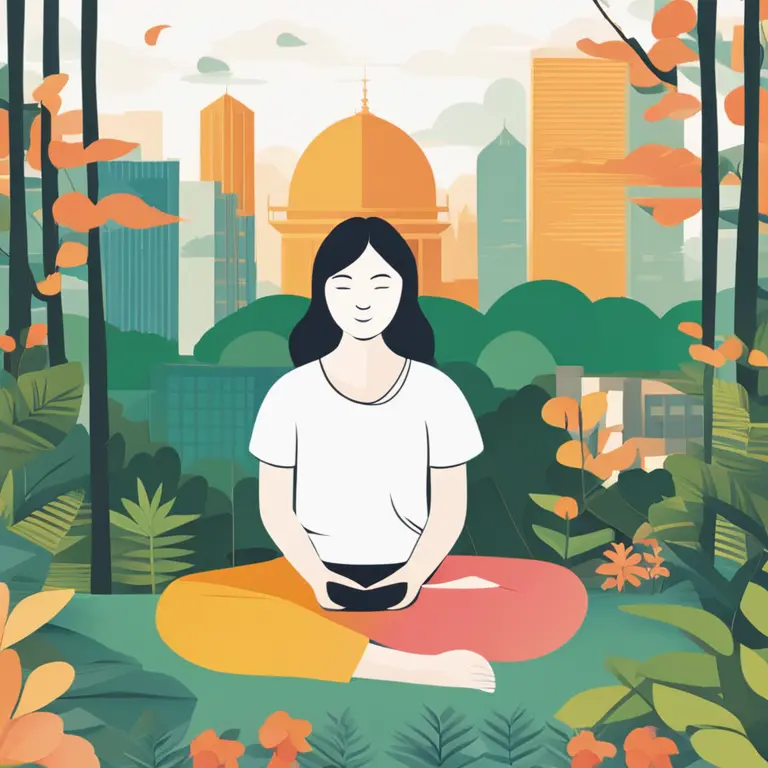
Mindful Moments: A Quick Meditation Guide
Embrace mindfulness with a 15-minute meditation practice designed to fit into your busy schedule and bring a sense of calm and clarity to your day.
article by Hina Kurosawa
Introduction to Mindfulness
With fast-paced lifestyles and technological distractions at every turn, finding peace and presence in the present moment is becoming increasingly sought-after. In this digital age, even the ancient practice of meditation has adapted to the needs of modern society. This quick guide will help you integrate a brief yet effective 15-minute meditation into your daily routine, providing a tranquil escape from the chaos of everyday life and bolstering your mental well-being for the years ahead.

Setting the Stage
Before diving into your 15-minute meditation, it's vital to create an environment conducive to mindfulness. Find a quiet space where you're unlikely to be disturbed. This could be a corner of your bedroom, a spot in your garden, or even your office with a 'Do Not Disturb' sign. Sit comfortably on the floor with cushions or on a chair with your feet grounded. Dim the lights or use soft lamp lighting, and consider playing gentle, ambient sounds to help drown out background noise.

Beginning Your Practice
To commence your meditation, start with a deep cleansing breath, inhaling fully through your nose and exhaling through your mouth. Release tension with each out-breath and gently close your eyes. Set a timer for 15 minutes, ensuring that you're not distracted by the need to check the time. As you settle into a natural rhythm of breathing, bring awareness to your body, scanning from head to toe, acknowledging any sensations or discomfort without judgment.

Embracing the Breath
The core of mindfulness meditation is the breath. Focus your attention on the air entering and leaving your nostrils, or the rise and fall of your chest or abdomen. If your mind starts to wander—you may find yourself planning the day ahead, mulling over past interactions, or drifting into fantasy—gently acknowledge these thoughts and then bring your focus back to your breathing. This redirection of attention is where the magic of mindfulness happens, as you train your mind to remain present.

Deepening the Experience
As you become more engrossed in the act of observation, you may notice that your breath becomes slower and deeper. This subtle change can lead to a sense of expansion as your awareness grows beyond the limits of your physical form. Let this experience deepen your connection to the present, recognizing that you are more than your thoughts and emotions—you are a conscious being immersed in the flow of now.
Concluding Your Meditation
As your 15-minute meditation draws to a close, do not rush to open your eyes or stand up. Take a few more deep breathes, and with each inhale, invite positive energy into your day. With each exhale, visualize releasing any remaining tension. Gently wiggle your fingers and toes to bring awareness back into the body. When you're ready, open your eyes and take a moment to appreciate the state of calm and clarity you've cultivated.
Integrating Mindfulness into Daily Life
The benefits of your meditation practice shouldn't end when the timer sounds. As you go about your day, aim to maintain the mindfulness fostered in your session. When eating, savor every bite; when listening, fully absorb the words of others; when working, commit your full attention to each task. This consistent application of presence can make the wisdom of the sages more accessible than ever in our modern lives.
Published: 1/18/2024
Modified: 1/18/2024
More predictions
Come back here soon to learn more about yourself and your future


Mastering The Path Of Mindfulness Meditation
Discover the serene path of mindfulness meditation with this comprehensive guide designed to help you find inner peace and clarity.


The Art of Mindfulness Meditation: A Step-by-Step Guide
Discover the serene journey of mindfulness meditation—learn the art of presence and cultivate a more mindful, peaceful existence.


Mindful Teaching: Meditation Practices for Educators
Discover the benefits of mindfulness meditation for educators seeking balance, enhanced concentration, and emotional wellbeing in a demanding profession.